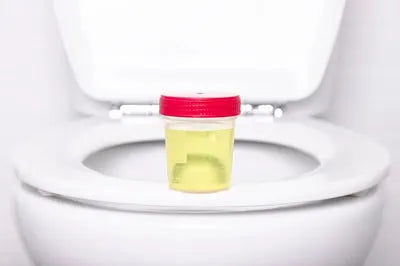‘At first, it was a bit of a joke between friends, but then over time it progressively got worse, and I was like, this isn’t normal’, Ferne McCann, a famous English television personality and model, said as she talked to THIS MORNING, a British television programme, about the incontinence issue she went through due to a prolapsed bladder.
However, fortunately, she made the right decision to consult her doctor when the problem seemed to be getting worse day by day. During the consultation, she realised the bladder prolapse happened because she did not follow any guidelines while performing pelvic floor exercises during her pregnancy. At the end of the discussion with THIS MORNING, she focused on how important it is not to ignore bladder prolapse symptoms and strengthen your pelvic floor every day, especially after childbirth.
What is a Bladder Prolapse?
The bladder is, basically, a hollow organ that stores urine, and when one urinates, the urine is released from the bladder and comes out of the body via the urethra. There is eventual loosening of the pelvic floor muscles. The frontal wall of the vagina, too, gets damaged due to ageing or other problems. This frontal wall is very important and gives support to the bladder; if it gets destroyed, you might have a bladder prolapse. Bladder prolapse and incontinence are closely linked together. Bladder prolapse causes issues like struggling while urinating or feeling a sense of discomfort or prolapse incontinence (since it causes urine bladder prolapse).
What causes a Prolapsed Bladder?
What causes bladder prolapse may be different for a woman. A bladder prolapse in women is linked to menopause and childbirth. A prolapsed bladder in men may be caused due to several reasons, although these causes are not exclusive to men.
Urinary bladder prolapse has also been linked to straining due to lifting heavy things or excessive coughing or constipation, or even straining your muscles too much while passing stools.
Stress urinary incontinence happens when pressure is exerted on the bladder due to activities like coughing, sneezing, or lifting heavy objects. How severe the pelvic incontinence problem is due to a bladder prolapse depends on the stage of the prolapse, which is based on how far the bladder dangles into the vagina. Stage 1 is when only a tiny part of it dangles into it, stage 2 is when it dangles enough to reach the vaginal opening, stage 3 is when it sticks out of the body through the opening, and stage 4, the severest one, is when it is fully out of the vagina.
Signs of stage 1 prolapse are commonplace, so the patient might consider the subtle signs as just a temporary effect of childbirth or menopause. But, as mentioned above, it is quite important to consult your doctor immediately after having witnessed even one of the signs so it does not get worse with time.
Bladder Prolapse Symptoms
Some of the symptoms of a bladder prolapse are:
-
discomfort in the pelvis region
-
tissue sticking out of the vagina
-
low backache
-
aching intercourse
-
a sensation that the bladder is not fully empty after urinating
Protection for Bladder Prolapse and Incontinence
You can find highly absorbent adult diapers online at Friends Adult Diapers, which are perfect for incontinence management. Friends makes Adult Diapers that fit you just right, can absorb all the liquid to prevent any wetness, and keeps away rashes and irritation. We are the adult diaper experts who have been delivering the best adult diapers to users across the world for over 20 years! With Friends, you can't go wrong.
Azadi Mubarak to you!
It is strongly recommended that you consult your doctor first before opting for any medication on your own. Depending on the stage of the prolapse, the doctor will suggest the right treatment options and help you manage the accompanying urinary prolapse and incontinence the right way.
















